第179章
The whole tribe of Caishanas does not exceed 400 souls in number.
None of them are baptised Indians, and they do not dwell in villages, like the more advanced sections of the Tupi stock; but each family has its own solitary hut.They are quite harmless, do not practise tattooing, or perforate their ears and noses in any way.Their social condition is of a low type, very little removed, indeed, from that of the brutes living in the same forests.They do not appear to obey any common chief, and I could not make out that they had Pajes, or medicine-men, those rudest beginnings of a priest class.Symbolical or masked dances, and ceremonies in honour of the Jurupari, or demon, customs which prevail among all the surrounding tribes, are unknown to the Caishanas.There is among them a trace of festival keeping; but the only ceremony used is the drinking of cashiri beer, and fermented liquors made of Indian-corn, bananas, and so forth.
These affairs, however, are conducted in a degenerate style, for they do not drink to intoxication, or sustain the orgies for several days and nights in succession, like the Juris Passes, and Tucunas.The men play a musical instrument, made of pieces of stem of the arrow-grass cut in different lengths and arranged like Pan-pipes.With this they wile away whole hours, lolling in ragged, bast hammocks slung in their dark, smoky huts.The Tunantins people say that the Caishanas have persecuted the wild animals and birds to such an extent near their settlements that there is now quite a scarcity of animal food.If they kill a Toucan, it is considered an important event, and the bird is made to serve as a meal for a score or more persons.They boil the meat in earthenware kettles filled with Tucupi sauce, and eat it with beiju, or mandioca-cakes.The women are not allowed to taste of the meat, but forced to content themselves with sopping pieces of cake in the liquor.
November 30th--I left Tunantins in a trading schooner of eighty tons burthen belonging to Senor Batalha, a tradesman of Ega, which had been out all the summer collecting produce, and was commanded by a friend of mine, a young Paraense, named Francisco Raiol.We arrived, on the 3rd of December, at the mouth of the Jutahi, a considerable stream about half a mile broad, and flowing with a very sluggish current.This is one of the series of six rivers, from 400 to 1000 miles in length, which flow from the southwest through unknown lands lying between Bolivia and the Upper Amazons, and enter this latter river between the Madeira and the Ucayali.We remained at anchor four days within the mouth of the Sapo, a small tributary of the Jutahi flowing from the southeast; Senor Raiol having to send an igarite to the Cupatana, a large tributary some few miles farther up the river, to fetch a cargo of salt-fish.During this time we made several excursions in the montaria to various places in the neighbourhood.Our longest trip was to some Indian houses, a distance of fifteen or eighteen miles up the Sapo, a journey made with one Indian paddler, and occupying a whole day.The stream is not more than forty or fifty yards broad; its waters are darker in colour than those of the Jutahi, and flow, as in all these small rivers, partly under shade between two lofty walls of forest.We passed, in ascending, seven habitations, most of them hidden in the luxuriant foliage of the banks; their sites being known only by small openings in the compact wall of forest, and the presence of a canoe or two tied up in little shady ports.The inhabitants are chiefly Indians of the Maraua tribe, whose original territory comprised all the small by-streams lying between the Jutahi and the Jurua, near the mouths of both these great tributaries.They live in separate families or small hordes, have no common chief, and are considered as a tribe little disposed to adopt civilised customs or be friendly with the whites.One of the houses belonged to a Juri family, and we saw the owner, an erect, noble-looking old fellow, tattooed, as customary with his tribe, in a large patch over the middle of his face, fishing under the shade of a colossal tree in his port with hook and line.He saluted us in the usual grave and courteous manner of the better sort of Indians as we passed by.
We reached the last house, or rather two houses, about ten o'clock, and spent several hours there during the great heat of midday.The houses, which stood.on a high clayey bank, were of quadrangular shape, partly open like sheds, and partly enclosed with rude mud-walls, forming one or more chambers.The inhabitants, a few families of Marauas, comprising about thirty persons, received us in a frank, smiling manner-- a reception which may have been due to Senor Raiol being an old acquaintance and somewhat of a favourite.None of them were tattooed; but the men had great holes pierced in their earlobes, in which they insert plugs of wood, and their lips were drilled with smaller holes.One of the younger men, a fine strapping fellow nearly six feet high, with a large aquiline nose, who seemed to wish to be particularly friendly with me, showed me the use of these lip-holes, by fixing a number of little white sticks in them, and then twisting his mouth about and going through a pantomime to represent defiance in the presence of an enemy.Nearly all the people were disfigured by dark blotches on the skin, the effect of a cutaneous disease very prevalent in this part of the country.The face of one old man was completely blackened, and looked as though it had been smeared with black lead, the blotches having coalesced to form one large patch.Others were simply mottled; the black spots were hard and rough, but not scaly, and were margined with rings of a colour paler than the natural hue of the skin.